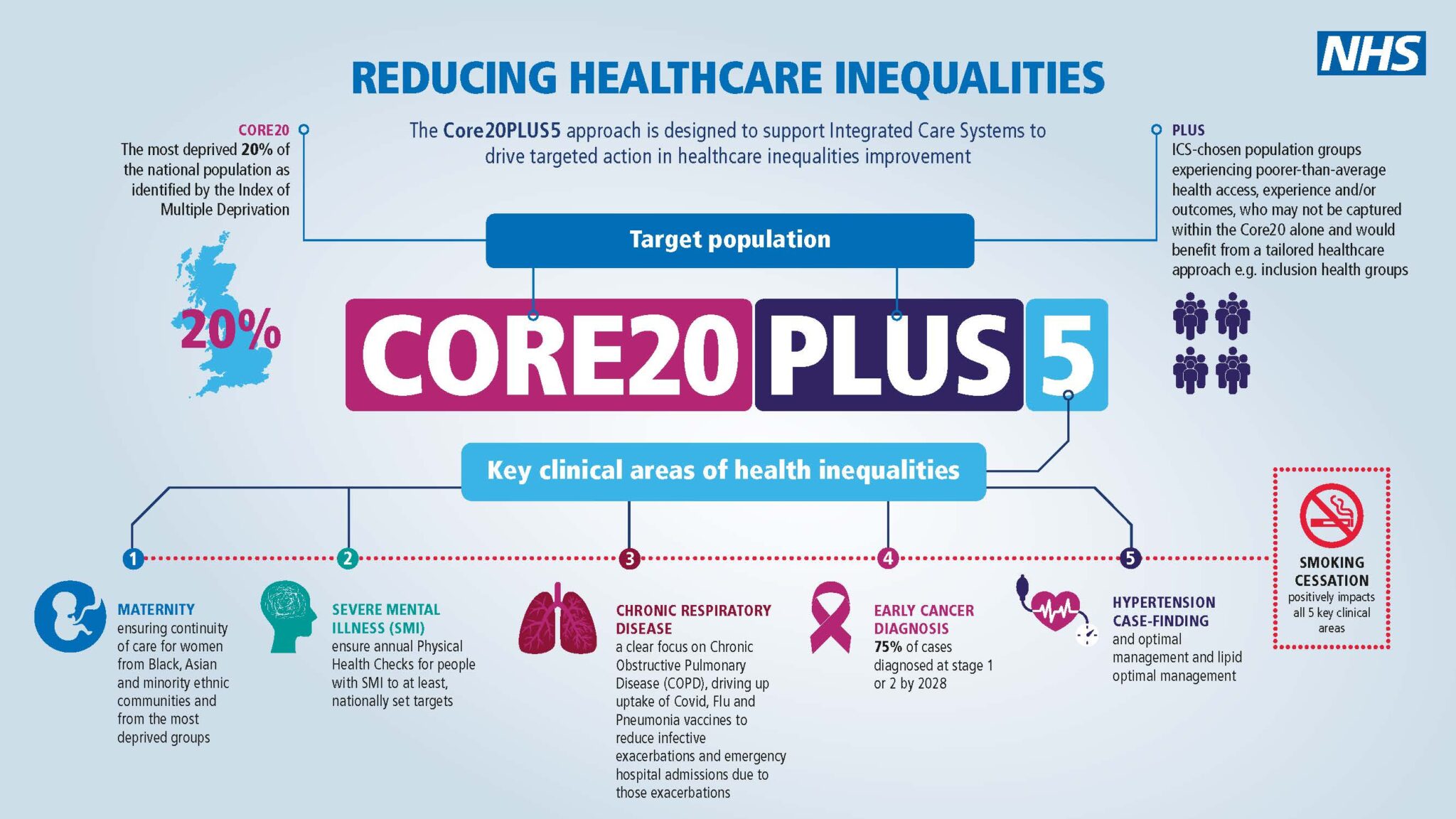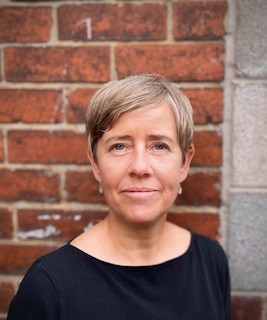Tackling Health Inequalities in Wakefield: New Core20PLUS Ambassadors Make a Difference
People in Wakefield are benefitting from our three newly graduated Core20PLUS ambassadors. Well deserved congratulations go to Cherie Miller, Health and Wellbeing Coach, Trinity Health Group PCN and Katie Day and Craig Benn, PCN Digital Support Officers. Everyday, they bring expertise and targeted activity to reducing healthcare inequalities across the district.
Their work, rooted in NHS England’s Core20PLUS5 programme, delivers meaningful engagement and improved outcomes for communities most in need, such as Gypsy, Roma, and Traveller groups as well as older adults and other digitally excluded populations.
What is the Core20PLUS5 Programme?
The Core20PLUS5 framework drives national and local action to tackle health inequalities. It defines “Core20” as the most deprived 20% of the population according to the Index of Multiple Deprivation. “PLUS” targets groups identified locally, such as:
- ethnic minorities
- people with learning disabilities
- socially excluded communities including those experiencing homelessness, addiction, or social exclusion.
The “5” refers to five clinical priorities needing accelerated improvement:
- maternity care
- severe mental illness
- chronic respiratory disease (COPD)
- early cancer diagnosis
- cardiovascular disease management.
By focusing resources and expertise on these areas, Core20PLUS5 aims to deliver fairer access, better experiences, and improved health outcomes for vulnerable groups.

What does it mean to be an Ambassador
Cherie, Katie and Craig have completed a year-long national programme dedicated to tackling healthcare inequalities. Through networking, professional development, and local projects, they’ve championed improvements in digital health access and inclusion. As part of the programme, they each had to submit a case study which provided insight on a key area of their work. These are outlined below:

Contact: Cherie.Miller1@nhs.net
Health Inclusion for Gypsy and Traveller Communities – Cherie MIller
Cherie’s case study focused on the Gypsy and Traveller community living on the Wakefield council–run site, home to over 100 residents. Health inequalities facing this group are long-standing, exacerbated by mistrust, poor literacy, cultural barriers and digital exclusion. Historically, regular contact with healthcare professionals has been absent, making it difficult for residents to build relationships and trust in the system.
To tackle this, Cherie and colleagues established a weekly face to face Health Drop-In service at the community building and also made themselves visible around the site. This consistent engagement helped break down barriers and enabled informal, culturally sensitive conversations about health. Residents have begun to feel more understood, leading to greater confidence in seeking support and addressing their health needs. Notable successes include:
- Improved vaccine uptake: Working with the Wakefield Childhood Vaccination team, tailored information was provided over several weeks, addressing misconceptions and barriers. Vaccinations are now offered on-site, and childhood vaccine uptake rates are climbing.
- Access to diabetic eye screening: Data showed low engagement among residents with diabetes. The team is now running drop-in sessions on-site, allowing people to ask questions in a familiar environment.
- Digital inclusion efforts: Recognising residents’ difficulties with online NHS tools, practical workshops were run (in collaboration with the Digital Transformation Team – see Katie’s case study!) to increase confidence using the NHS App and other tools. Features such as prescription ordering and proxy access for children’s records have made a real difference.
Partnerships with organisations like LeedsGATE and other local services were key, inspiring new ways of sharing health information through easy-read leaflets, voice notes, QR codes and verbal explanations. Cherie also recommends maintaining a consistent presence, building trust, and being creative in communication to engage traditionally excluded groups.
Empowering Older Adults and Vulnerable Populations Digitally – Katie Day and Craig Benn
Their project focused on digital inclusion, crucial for ensuring equitable access to healthcare in an increasingly digital NHS. It launched with patients aged 65–75 on repeat medication and then widening to everyone over 50. The team identified individuals not using online health services and invited them to attend supportive community sessions.
Key actions included:
- Organising training and support sessions in partnership with local GP practices and libraries, as well as at Traveller sites, asylum seeker centres, and with ethnic minority communities.
- Mobilising a volunteer group, the Digital Champions, with lived experience to serve as trusted community ambassadors, helping peers to download and use the NHS App and, where relevant, the PATCHS online consultation tool.
- Tackling digital exclusion barriers by delivering workshops tailored to individuals’ needs and literacy levels, ensuring everyone, especially the digitally excluded and vulnerable could manage their health online.
The impact is clear: since October 2024, Wakefield NHS App registrations have increased from 185,780 to over 202,000 by March 2025 – a rise of 17,016 people.
More than 184 events were delivered, supporting 1,530 patients to build confidence with digital tools and proactively manage their health.
This work has not only improved access to care for marginalised groups but also helped GP practices reduce demand by empowering patients to manage their own care wherever possible.
Wakefield’s Future: Advancing Inclusion, One Community at a Time
The work that our Core20Plus5 Ambassadors have undertaken shows that real progress on health inequalities is possible – by listening to the needs of different groups, building trust, and taking creative approaches.
Core20Plus5 is a key element of the NHS Fit for the Future plan with the themes and 5 clinical priorities running throughout. As Wakefield continues its Core20Plus5 journey, their contributions stand as evidence of the difference committed individuals can make for the district’s most vulnerable residents



